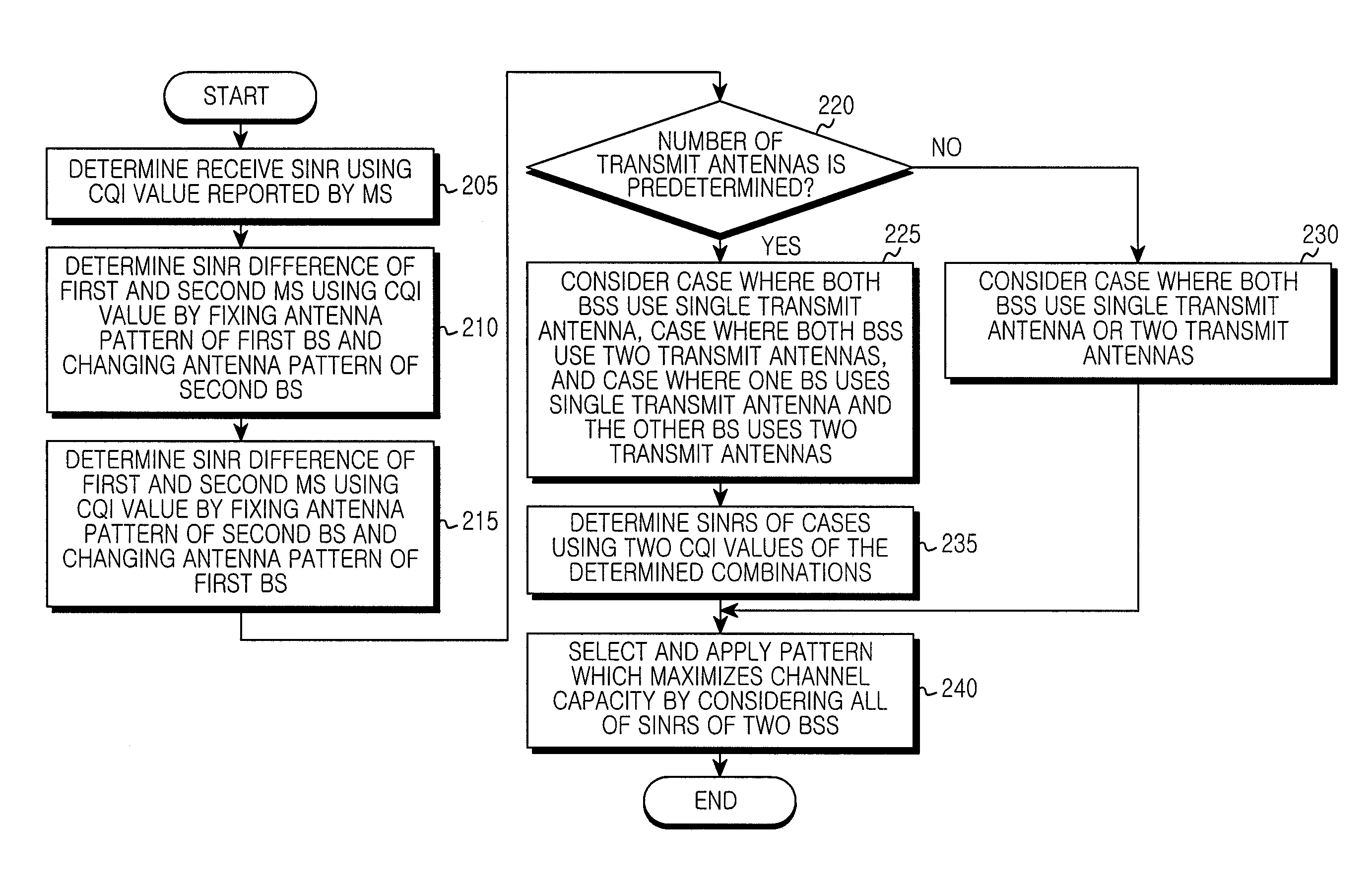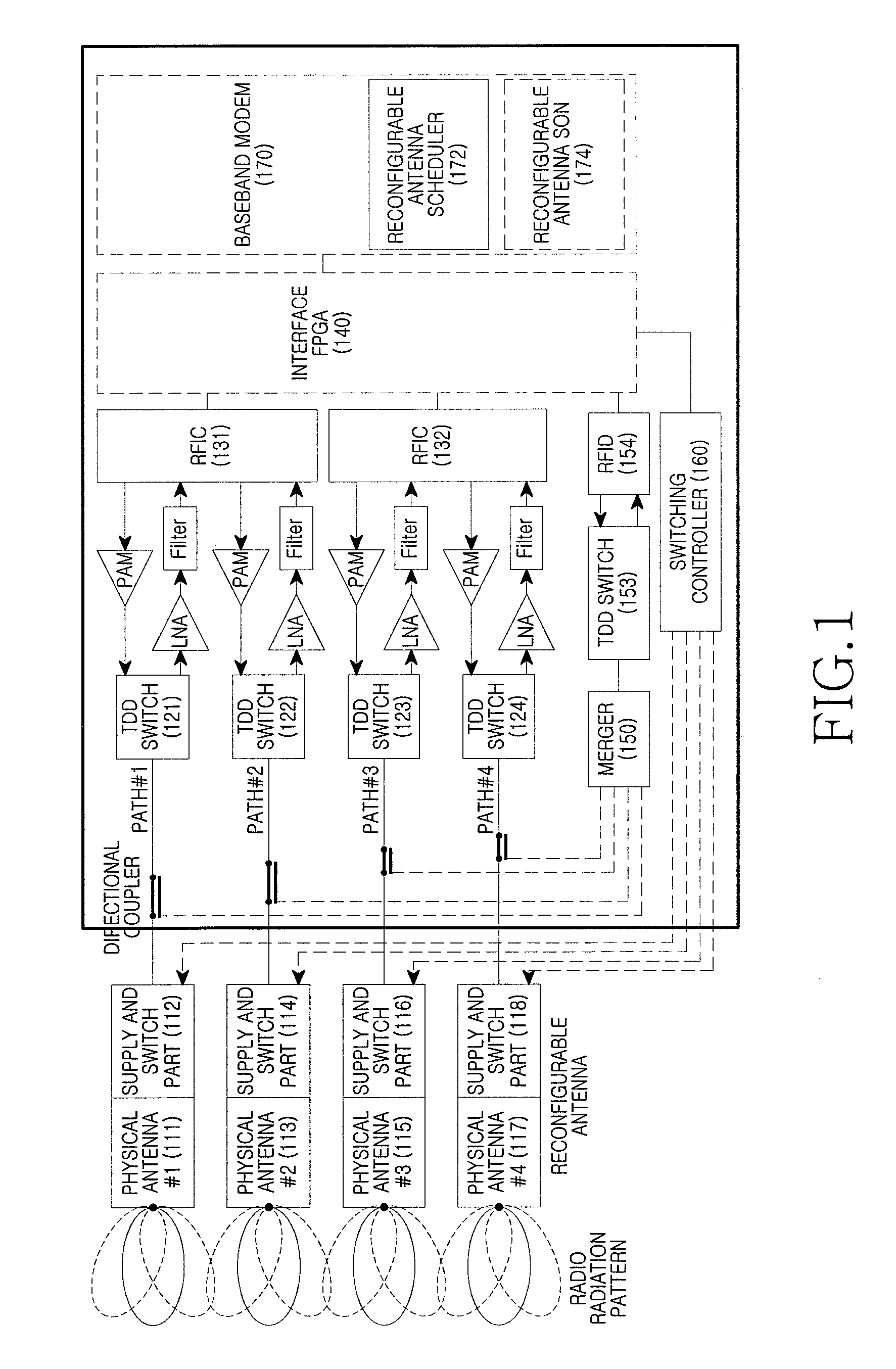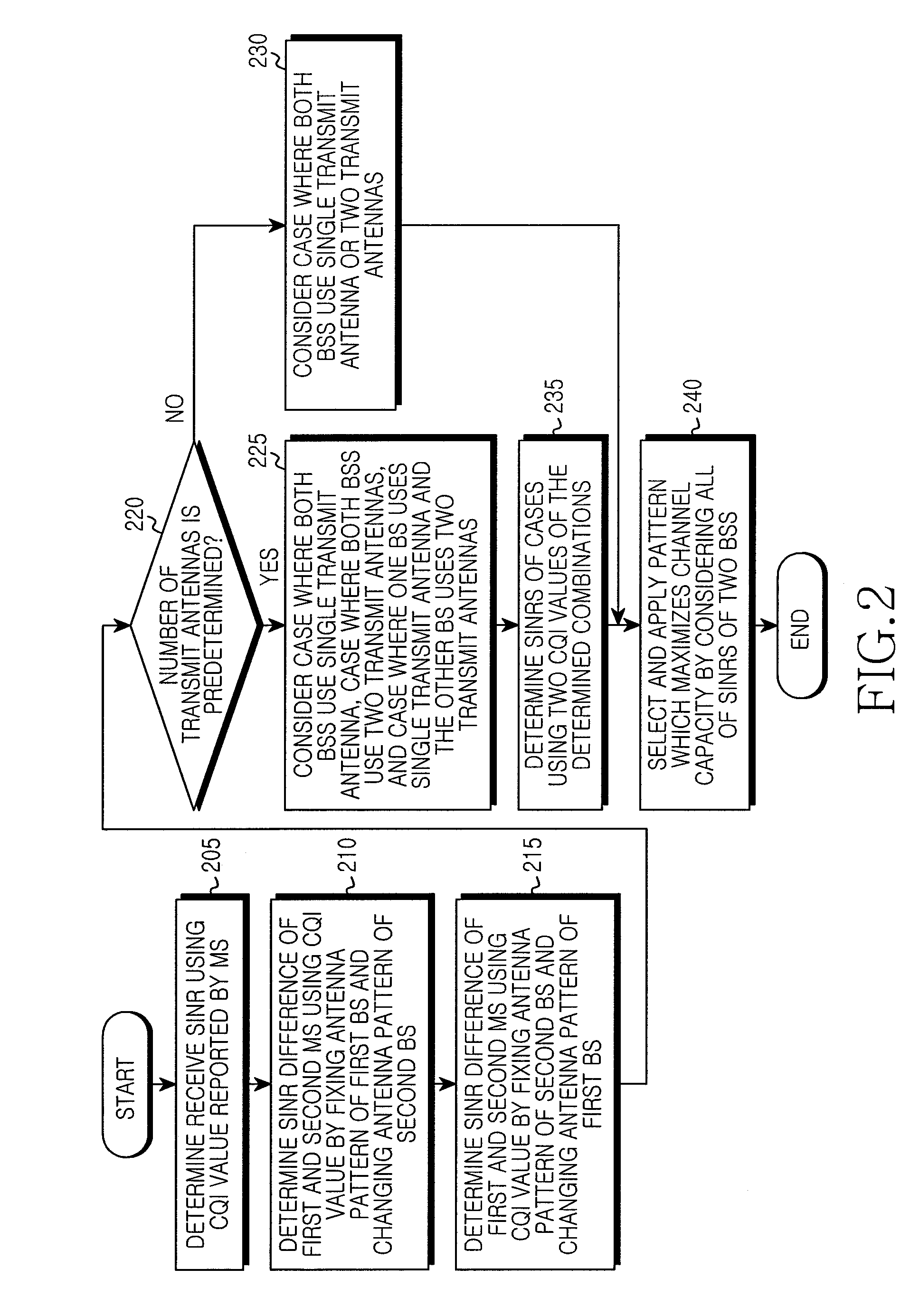Method and apparatus for down link interference cancelation between adjacent base stations in base station with reconfigurable antenna
a technology of downlink interference and reconfigurable antenna, which is applied in the field of base stations, can solve problems such as limited downlink performance, and achieve the effect of cancelling downlink interferen
- Summary
- Abstract
- Description
- Claims
- Application Information
AI Technical Summary
Benefits of technology
Problems solved by technology
Method used
Image
Examples
case 1
[0086 may save the scanning time by partially scanning the 24 pattern combinations and finely scanning only a small number of candidate patterns of clear difference with time using the initial partial scanning result.
[0087]The SINR of the two BSs are considered jointly. The pattern for maximizing the determination of the channel capacity of the combinations is selected and applied to each BS. The channel capacity of the two BSs is maximized based on Equation 5.
Deter min ation1=log2(1+SINR1)+log2(1+SINR2)
Dter min ation2=SINR1(dB)+SINR2(dB) (5)
[0088]Deter min ation1 is based on the channel capacity formula of Shannon information theorem. A case that weights can be applied to Equation 5 per user may be considered and the case may be based on Equation 6.
Deter min ation3=weight1·log2(1+SINR1)+weight2·log2(1+SINR2)
Deter min ation4=weight1·SINR1(dB)+weight2·SINR2(dB) (6)
[0089]When weight1=1 and weight2=0, only the first MS is considered and the second MS is sacrificed. The weight may var...
PUM
 Login to View More
Login to View More Abstract
Description
Claims
Application Information
 Login to View More
Login to View More - R&D
- Intellectual Property
- Life Sciences
- Materials
- Tech Scout
- Unparalleled Data Quality
- Higher Quality Content
- 60% Fewer Hallucinations
Browse by: Latest US Patents, China's latest patents, Technical Efficacy Thesaurus, Application Domain, Technology Topic, Popular Technical Reports.
© 2025 PatSnap. All rights reserved.Legal|Privacy policy|Modern Slavery Act Transparency Statement|Sitemap|About US| Contact US: help@patsnap.com



